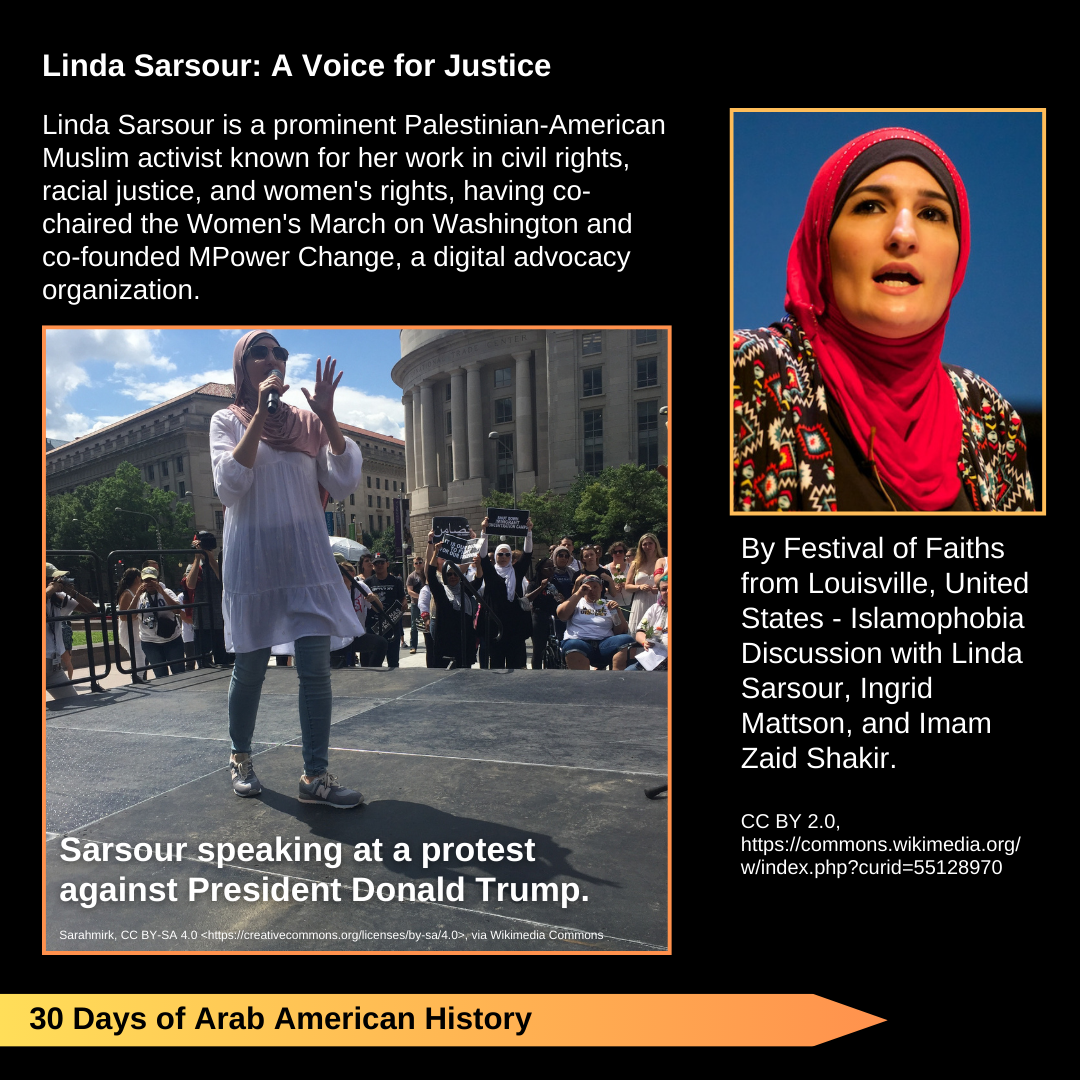Day 23. Linda Sarsour is A Voice for Justice.

“If one of us is not free, then none of us are truly free.”
— Linda Sarsour
Today we honor Linda Sarsour, a fearless Palestinian American Muslim activist, whose work at the intersection of racial justice, gender equity, and immigrant rights has made her a powerful and sometimes controversial voice for collective liberation.
A Daughter of Brooklyn with Global Impact
Born and raised in Brooklyn, New York, to Palestinian immigrant parents, Linda Sarsour’s activism was born from her lived experience navigating the realities of Islamophobia, patriarchy, and systemic inequality in post-9/11 America.
She became the Executive Director of the Arab American Association of New York in her early twenties and has since co-founded the Women’s March, helped lead MPower Change (a Muslim grassroots movement), and championed the Movement for Black Lives and immigrant justice across the US.
Building Bridges and Leading Movements
In 2017, Sarsour co-chaired the historic Women’s March on Washington, one of the largest single-day protests in US history. Her leadership made visible the critical role of Muslim women in progressive movements and emphasized that true feminism must be intersectional — inclusive of all races, religions, and gender identities.
Whether speaking on police violence, reproductive justice, or the rights of immigrants and refugees, Sarsour reminds us that justice must be expansive and rooted in solidarity.
In Her Own Words
“When we stand up for one another, when we show up, when we speak truth to power, that is the purest form of patriotism.”
— Linda Sarsour
Linda’s outspoken nature and unwavering principles have made her both celebrated and challenged, but through it all, she remains committed to love, liberation, and dignity for all people.
Recognition and Legacy
Linda Sarsour has received numerous honors, including being named among Time Magazine’s 100 Most Influential People in 2017. She is also the author of the memoir “We Are Not Here to Be Bystanders,” which tells her story of courage, faith, and fierce resistance.
Her work continues to inspire young activists, especially Muslim women and girls, to embrace their identities and take up space in movements for change.
Learn More About Linda Sarsour
📚 We Are Not Here to Be Bystanders – Memoir, Good Reads review
🎥 Linda Sarsour’s Women’s March Speech
📑 Living with 9/11: The Muslim American – Guardian Article
Quotes to Remember
“You don’t have to be a woman to stand up for women. You don’t have to be Black to stand up for Black lives. You don’t have to be Muslim to stand up for Muslims.”
— Linda Sarsour
Reflection
Linda Sarsour uses her story, experiences and voice to change people’s views of the Muslim community, and raise awareness of the injustices she has witnessed. We invite you to consider these questions as you reflect on her work.
💬What does solidarity mean to you? In what ways can we encourage solidarity despite the divisiveness of the times we live in?
💬How can we show up for each other in ways that honor both identity and shared humanity?
Join us tomorrow as we highlight another social justice leader’s impact on policy and research for Arab Americans.
Learn more: Explore the efforts of her grassroots movement organization, MPower Change.
#UU #UUA #CelebrateDiversity #30DaysOfHonoringArabAmericans #ArabAmerican #ArabAmericanHeritageMonth #MPowerChange #WomenInJustice #WeAreNotBystanders
Discover more from SepulvedaUU
Subscribe to get the latest posts sent to your email.
